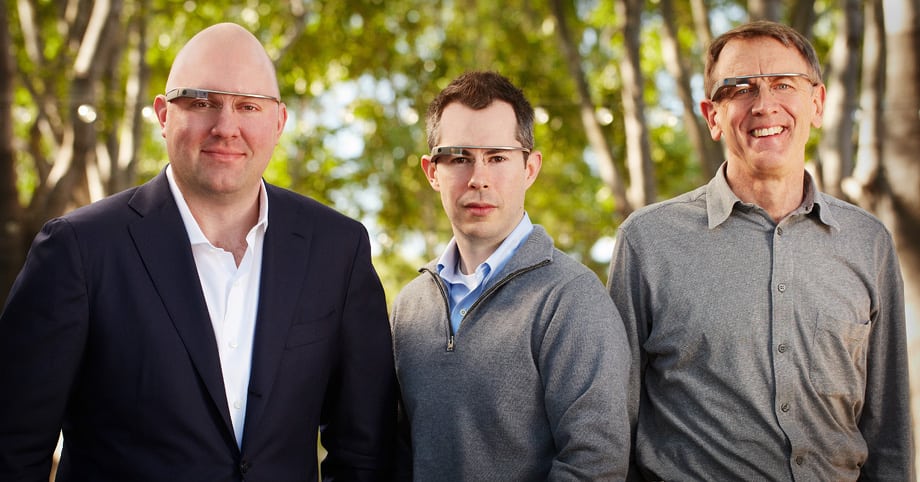Skift Take
Travel information is a big part of Google Glass' use case, and would be fascinating to see the travel-related startups that will come out of the ecosystem. We'll be tracking all of them here, stay tuned.
Google Inc. has called on venture capital heavyweights Andreessen Horowitz and Kleiner Perkins Caufield & Byers to spur creation of software for Google Glass, its wearable mobile-computing devices that resemble spectacles.
The search giant’s venture arm is joining with the Silicon Valley venture firms to share information about software startups seeking funds to build Google Glass apps, the companies said in a press briefing today at Google’s Mountain View, California, headquarters.
The investor coalition, called the Glass Collective, is betting that wearable computers will grow into a platform for third-party software developers the same way Apple Inc.’s mobile devices fueled the formation of thousands of mobile-app makers. The VCs will jointly fund startups that dream up new uses for Google Glass in areas such as entertainment, education and health care.
“The creativity that can be applied against this is basically unbound,” said Marc Andreessen, the Web pioneer and co-founder of Andreessen Horowitz. “There’s hundreds of thousands of things people are going to be able to do.”
The three investors will use capital from existing funds to support the project and don’t intend to create a new fund or invite other VCs to join, Google Ventures Managing Partner Bill Maris said at the event.
Google Glass has already gained support from large mobile- app developers, including Path Inc. and Twitter Inc., which have begun looking at ways to adapt their services to the new technology, Kleiner Perkins General Partner John Doerr said.
‘Amplified Reality’
“This could well be more than another platform,” said Doerr, whose firm invested in Path and Twitter. “This could be a whole new way of appreciating the world. It’s amplified reality.”
Google plans this month to start shipping Glass Explorer Edition, early versions of the glasses designed to let developers tinker with new applications, the company said.
The Glass Collective plans to back app makers even though there isn’t yet a business model for such software, Andreessen said.
“At some point, it would be nice to build apps for Glass that you can charge for,” he said. “That’s not a precondition” to investing, he added.
Bloomberg LP, parent of Bloomberg News, is an investor in Andreessen Horowitz.
Zombies, Education
When asked about apps they’d like to see on Google Glass, the investors showed different interests. Maris said he would like to see science programs. Doerr saw a need for more visual online education apps. Andreessen said he wanted a zombie game.
Sergey Brin, the Google co-founder who strode into today’s meeting sweaty from a bike ride, said he’d like an app that monitors his heart rate while he rides.
Extolling the benefits of Google Glass in February, Brin said that standing upright and summoning information to the eyes is a more elegant use of the body than “rubbing a featureless piece of glass.” Hunching over a smartphone while walking about, he said, is “emasculating.”
–Editors: Tom Giles, Jillian Ward
To contact the reporter on this story: Douglas MacMillan in San Francisco at [email protected]
To contact the editor responsible for this story: Tom Giles at [email protected]
![]()
The Daily Newsletter
Our daily coverage of the global travel industry. Written by editors and analysts from across Skift’s brands.
Have a confidential tip for Skift? Get in touch
Tags: google, google glass
Photo credit: Marc Andreessen, Bill Maris and John Doerr, with the Google Glass look.
